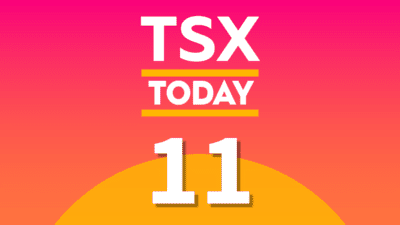It’s been a hectic year. With much of the economy shut down for months, the federal and provincial governments have seen a decline in revenue. Meanwhile, the Canada Revenue Agency (CRA) has had to implement historic stimulus measures to support Canadian households and workers during the crisis. CRA taxes could rise when the crisis is resolved.
Here’s what higher CRA taxes could mean for Canadian investors and taxpayers in the years ahead.
CRA tax hike
Last year, Canada’s fiscal deficit, the amount the government spends in excess of its revenue, was $26.6 billion. That figure was already controversial. This year, the deficit is expected to exceed $252.1 billion, driven by the generous compensation and economic relief programs implemented during COVID-19.
In other words, Canada’s deficit has ballooned 10-fold. Meanwhile, the economy has lost a record number of businesses and employment opportunities. Oil and gas companies have seen their margins squeezed due to the dip in crude oil prices. Commercial real estate ventures are on the verge of bankruptcy.
The recovery back to pre-crisis levels could take several years.
This gloomy outlook for the economy has already taken a toll on Canada’s credit rating. Fitch Ratings lowered Canada’s federal rating from AAA to AA+ this week. If the other two ratings agencies follow this downgrade, the government’s costs of borrowing money could rise sharply.
To tackle this, CRA taxes may need to be expanded. Canadians could expect higher taxes on capital gains, property investments, corporate and personal earnings in the years ahead. It’s the only way to reduce the strain on the government’s finances.
Investors can mitigate CRA taxes
Investors in Canadian stocks could mitigate higher CRA taxes by paying upfront. For example, if you have a choice between investing after-tax income in a Tax-Free Savings Account (TFSA) or a pre-tax retirement savings plan, the TFSA would be a better option.
By investing in a TFSA over a RRSP, you lock in today’s tax rate rather than pay future tax rates on capital gains and dividends. Of course, you may want to reach out to your financial advisor for more details.
Meanwhile, investors must also account for higher corporate CRA taxes. Listed companies could see a decline in net income if the corporate tax rate is hiked. Stocks will need to correct to adjust to lower earnings. Investors may need to be more conservative with their valuations and estimates for future profits.
The impact of higher corporate taxes could be much greater for companies with wider profit margins. Banks, luxury retailers, and software stocks may be in the CRA’s cross-hairs.
Bottom line
The federal government has been compelled to step in and prevent chaos. Now, the federal deficit has expanded from a wide gap to an endless abyss. Reducing the debt burden could mean raising CRA taxes in the future.
Investors could mitigate this impact by paying taxes upfront and protecting future gains. They must also account for lower corporate earnings in the future. At the moment, investors seem to be underappreciating the challenges ahead. Stay safe!







